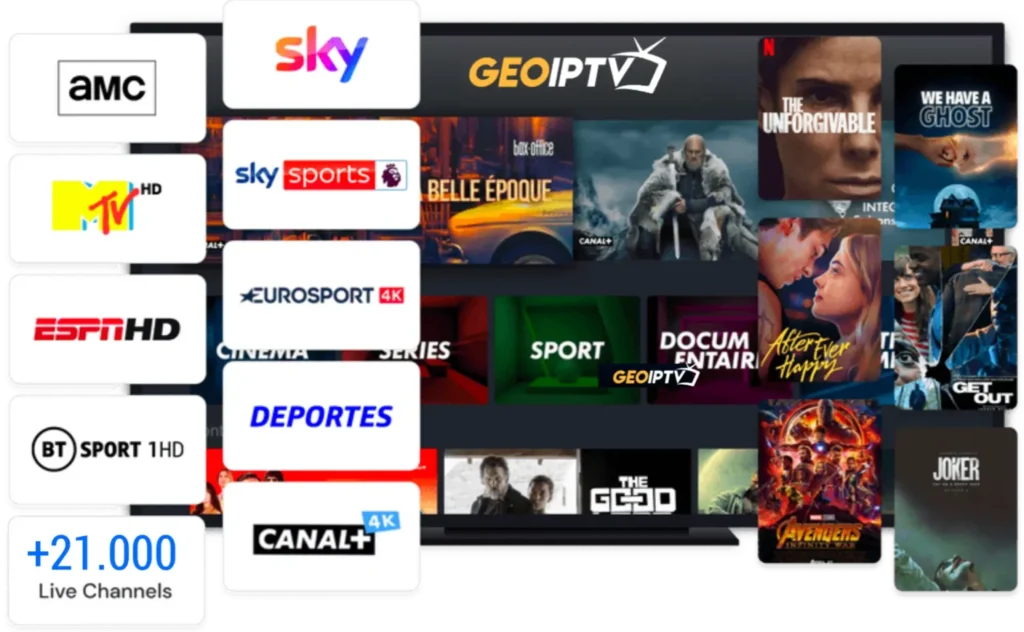Table of Contents
- Introduction
- What is IPTV?
- How Does IPTV Work?
- Setting Up IPTV at Home
- Choosing the Best IPTV Service
- IPTV and Legal Considerations
- Benefits and Limitations of IPTV
- Advanced IPTV Features and Tips
- Frequently Asked Questions About IPTV
- Conclusion
- Additional Resources
Introduction
The television landscape has transformed significantly in the digital age. With the advent of Internet Protocol Television (IPTV), viewers now have more control over what, when, and how they watch their favorite shows and movies. IPTV is revolutionizing the way content is delivered and consumed by leveraging the power of the internet.
This comprehensive IPTV tutorial will guide you through everything you need to know about IPTV, including its benefits, setup process, legal considerations, and tips for selecting the best service. Whether you’re a newcomer to IPTV or looking to optimize your existing setup, this guide is your go-to resource.
Looking for a reliable IPTV service? Check out Abonnement IPTV 8K for high-quality IPTV solutions.
What is IPTV?

Definition of IPTV
IPTV, or Internet Protocol Television, is a system where television content is delivered over an internet connection instead of traditional terrestrial, satellite, or cable television formats. Using the internet allows IPTV to offer a wide range of on-demand content, live broadcasts, and time-shifted media services.
How IPTV Differs from Traditional TV
Traditional TV relies on scheduled programming delivered via satellite or cable. In contrast, IPTV provides:
- Flexibility: View content anytime, not just during scheduled programming.
- Customization: Access to personalized content based on your preferences.
- Cost-effectiveness: Often cheaper than traditional cable or satellite packages.
| Feature | Traditional TV | IPTV |
|---|---|---|
| Delivery Method | Cable/Satellite | Internet |
| Flexibility | Limited | On-demand & Live |
| Cost | High | Affordable |
| Device Compatibility | Restricted | Wide range (smart TVs, PCs) |
How Does IPTV Work?

Understanding the Technology Behind IPTV
IPTV relies on streaming protocols like HTTP Live Streaming (HLS) and MPEG-DASH to deliver video and audio content over an internet connection. Here’s how it works:
- Content Source: Live or pre-recorded content is digitized and stored on servers.
- Streaming: When a user selects content, it’s streamed directly to their device.
- End-User Device: Devices such as smart TVs, smartphones, or set-top boxes decode and play the content.
Types of IPTV Services
- Live IPTV: Streams live television, such as sports events or news broadcasts.
- Video on Demand (VoD): Allows users to select and watch movies or TV shows whenever they want.
- Time-Shifted IPTV: Offers the ability to watch previously broadcasted shows on-demand (e.g., catch-up TV).
| Type | Example | Features |
|---|---|---|
| Live IPTV | Sports, News | Real-time streaming |
| Video on Demand | Movies, Shows | Access anytime |
| Time-Shifted IPTV | Catch-up TV | Watch missed broadcasts |
IPTV Hardware and Software Requirements
To enjoy IPTV, you’ll need:
- Devices: Smart TVs, smartphones, PCs, or set-top boxes.
- Apps: Dedicated IPTV apps like IPTV Smarters or VLC Media Player.
- Internet Connection: A stable and high-speed connection (recommended: 10 Mbps or higher).
Setting Up IPTV at Home
Step-by-Step Guide to Setting Up IPTV
- Choose an IPTV Provider: Select a reputable service provider like Abonnement IPTV 8K.
- Install an IPTV App: Download an IPTV app compatible with your device.
- Configure Settings: Enter the provider’s server URL or M3U playlist.
- Test Your Connection: Ensure the stream runs smoothly.
Common Issues During Setup
- Buffering Issues: Ensure your internet speed meets the requirements.
- Device Compatibility: Confirm your device supports the IPTV app.
- Authentication Errors: Double-check your login credentials or M3U playlist URL.
Choosing the Best IPTV Service
When selecting an IPTV service, consider:
- Content Variety: Does the service offer channels and on-demand content you want?
- Streaming Quality: Look for HD or 4K streaming options.
- Customer Support: A reliable provider offers 24/7 assistance.
We recommend Abonnement IPTV 8K for their excellent service and streaming quality.
IPTV and Legal Considerations

Is IPTV Legal?
Yes, IPTV is legal when content is licensed and delivered by legitimate providers. However, unlicensed or pirated IPTV services can lead to legal issues.
Protecting Yourself While Using IPTV
- Use a VPN to maintain privacy and secure your connection.
- Verify the legality of the provider before subscribing.
Benefits and Limitations of IPTV
Benefits
- Customizable viewing experience.
- Affordable subscription costs.
- High-definition streaming.
Limitations
- Dependence on a stable internet connection.
- Risk of using unlicensed services.
Advanced IPTV Features and Tips
- Playlists: Customize playlists for quick access to favorite channels.
- Parental Controls: Monitor and restrict content for younger viewers.
- Bandwidth Optimization: Upgrade your internet plan if streaming frequently buffers.
Frequently Asked Questions About IPTV
- What devices support IPTV? Most smart TVs, PCs, and smartphones are compatible with IPTV apps.
- How much internet speed is required? A minimum of 10 Mbps for HD streaming.
Conclusion
IPTV is an innovative solution for accessing television content in today’s digital age. Whether you’re looking for live sports, movies, or catch-up TV, IPTV offers unmatched flexibility and convenience. With this comprehensive tutorial, you’re now equipped to make the most of IPTV services.
For a reliable IPTV experience, check out Abonnement IPTV 8K.




